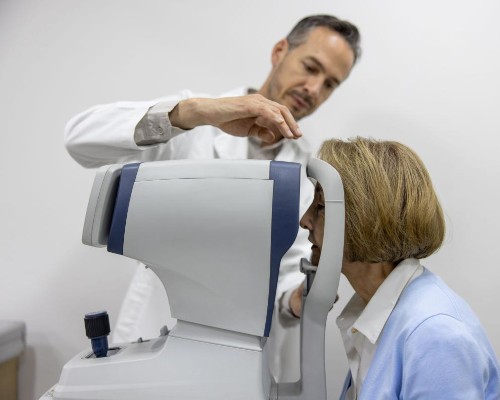3D Eye Scans Unveil Crucial Insights into Kidney Health
 Cutting-edge research indicates that 3D eye scans hold the key to unraveling critical information about kidney health, potentially transforming the landscape of disease monitoring. A recent study suggests that these scans can offer valuable clues, aiding in the early tracking of kidney disease progression, especially in its asymptomatic early stages.
Cutting-edge research indicates that 3D eye scans hold the key to unraveling critical information about kidney health, potentially transforming the landscape of disease monitoring. A recent study suggests that these scans can offer valuable clues, aiding in the early tracking of kidney disease progression, especially in its asymptomatic early stages.
Kidney diseases often develop stealthily, presenting no symptoms until the disease has significantly advanced. Current screening tests struggle to detect the condition until half of the kidney function has been compromised. However, the newfound technology showcases promise in supporting early diagnosis.
Researchers, leveraging highly-magnified images, focused on the retina. Utilizing Optical Coherence Tomography (OCT) the team created cross-sectional pictures of the retina, revealing individual layers within minutes.
The eye uniquely allows observation of microvascular circulation, a process frequently impacted by kidney disease. By analyzing OCT images from 204 patients at various kidney disease stages and 86 healthy volunteers, the study uncovered that chronic kidney disease correlated with thinner retinas. Remarkably, thinning progressed in tandem with declining kidney function and reversed upon successful kidney transplantation.
Given the rising prevalence of kidney disease, often attributed to conditions such as diabetes, high blood pressure, and obesity, the potential for early detection through regular eye checks is gaining traction. The study indicates that such monitoring could empower patients to make lifestyle changes, mitigating health risks.
Professor Neeraj Dhaun, a leading figure in the study and Professor of Nephrology at the University of Edinburgh’s Centre for Cardiovascular Science, expressed optimism about the findings. He highlighted the eye's significance as a window into kidney health, potentially identifying individuals with early kidney disease, facilitating timely intervention.
The technology, supported by Heidelberg Engineering’s imaging platform, not only holds promise for clinical trials but also presents an opportunity to develop drug treatments for a disease that has historically proven challenging to treat. Dr. Aisling McMahon, Executive Director of Research and Policy at Kidney Research UK, lauded the research as a potential replacement for invasive procedures, offering a kinder method for monitoring kidney health.
The researchers emphasize the need for further studies, including longer-term clinical trials involving larger patient groups, before the technology can become a routine part of healthcare.
The study is published in the journal Nature Communications.



